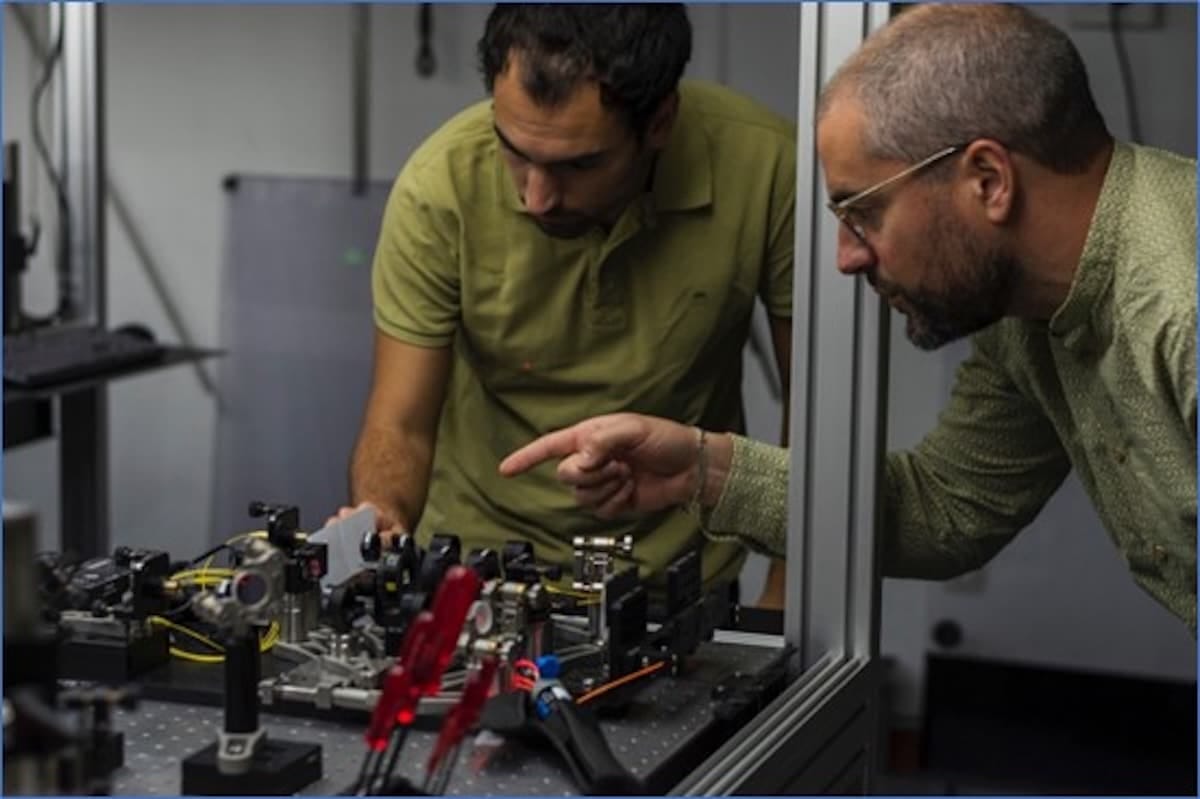Researchers from the Autonomous University of Madrid (UAM) have developed a revolutionary quantum communication system that promises to transform the security of messages in critical scenarios. This advancement is part of the international project COMPHORT, funded by the State Research Agency (AEI) and supported by the European network of quantum technologies ERANET-QuantERA.
A Quantum Device Operating at Room Temperature
The heart of the project is a device that emits individual photons, key elements for quantum message encryption. Unlike traditional systems that require extremely low temperatures, this innovation operates at room temperature, significantly reducing costs and technical complexity.
Carlos Antón, the project coordinator, explained: “We use defects in hexagonal boron nitride as quantum emitters. These generate unique photons that cannot be divided or cloned, ensuring total security in the transmission of information.”
The device is designed to be compact and accessible, using electrical pulses instead of lasers as the source of excitation. This not only simplifies the design but also makes it more durable and affordable.
Real Tests in Berlin
The team will test this quantum communication system in the heart of Berlin. Messages will be transmitted through the air using individual photons, demonstrating the system’s effectiveness in urban conditions. The technology will employ Quantum Key Distribution (QKD), a method that ensures the inviolability of the transmitted information.
The tests will include an optical link of up to 750 meters, aiming to validate its robustness in dynamic scenarios such as dense urban areas. This approach could be especially useful in natural disasters, where traditional communication infrastructures are often inoperative.
Applications Beyond Emergencies
The COMPHORT technology has significant potential in fields such as the security of communications for autonomous vehicles, drones, and aircraft. It could also be used in temporary settings, such as field hospitals, where mobility and security are crucial.
“This quantum system not only represents an advancement in secure communication, but also highlights the adaptability of quantum technology in challenging scenarios,” Antón emphasized.
International Collaboration
The project, which began in July 2024 and will extend until June 2027, brings together experts from institutions and companies in Spain, Germany, Turkey, and the United Kingdom. Key collaborations include Technische Universität Berlin, University of Bristol, and companies like Nanoplus Advanced Photonics.
The first version of the ultra-efficient single-photon source will be ready by late 2025, marking a milestone in the development of quantum technologies for practical applications.
A Commitment to Innovation in Spain
This achievement reinforces Spain’s position as a key player in global quantum research, thanks to the support of the State Research Agency and its commitment to international collaborative projects. COMPHORT not only promises to revolutionize communication security but also to open new doors for the implementation of quantum technology in our daily lives.

